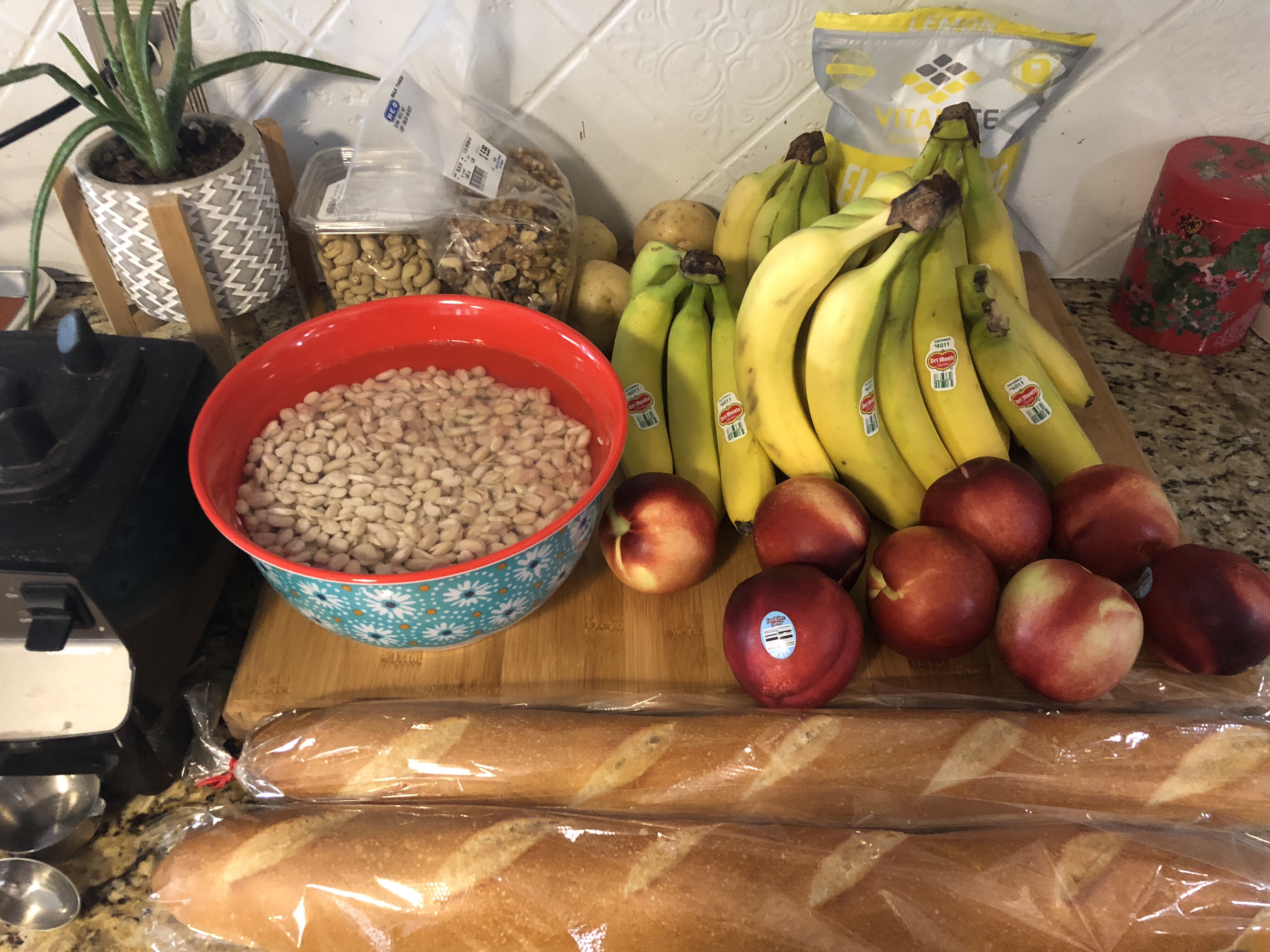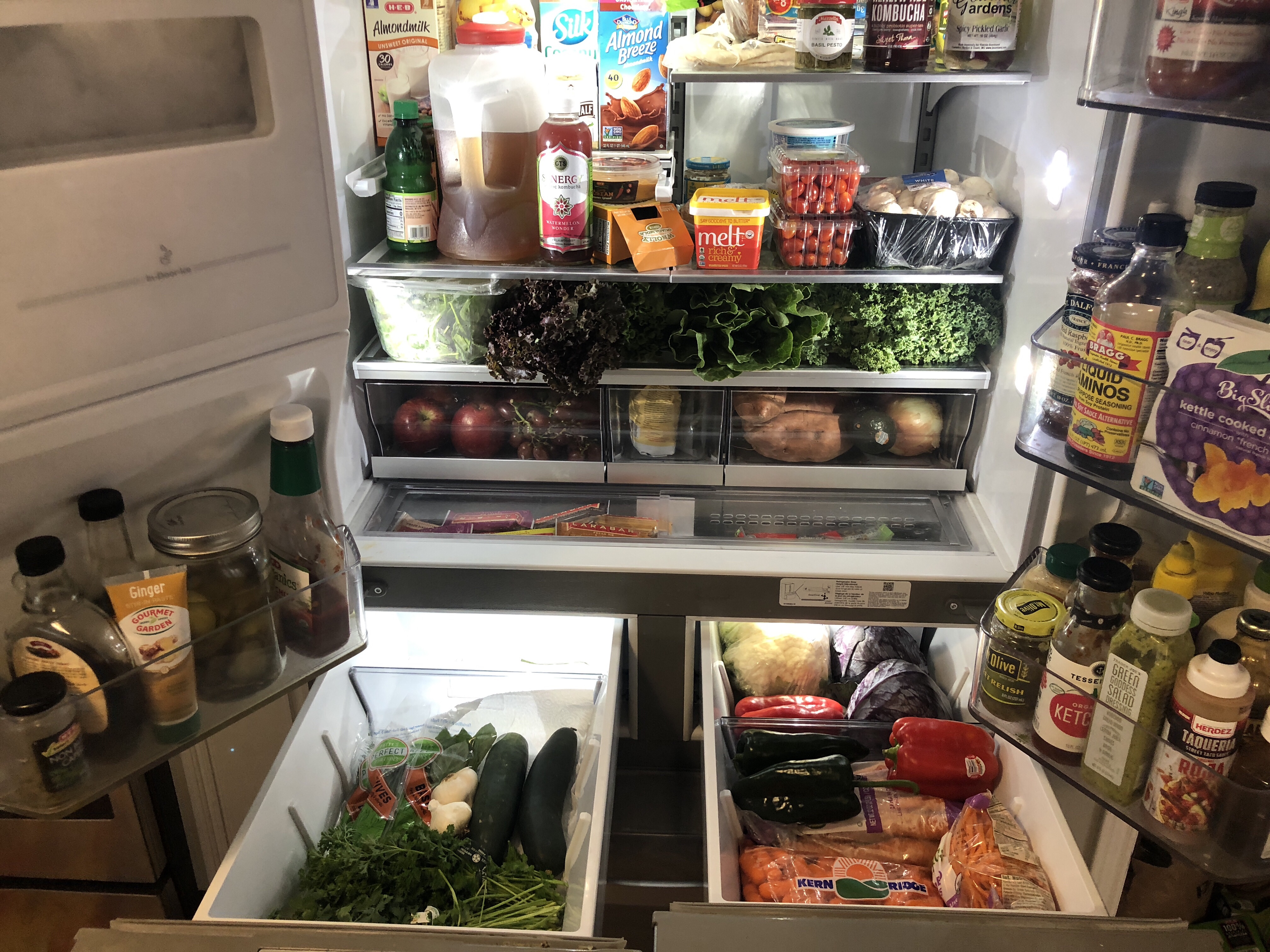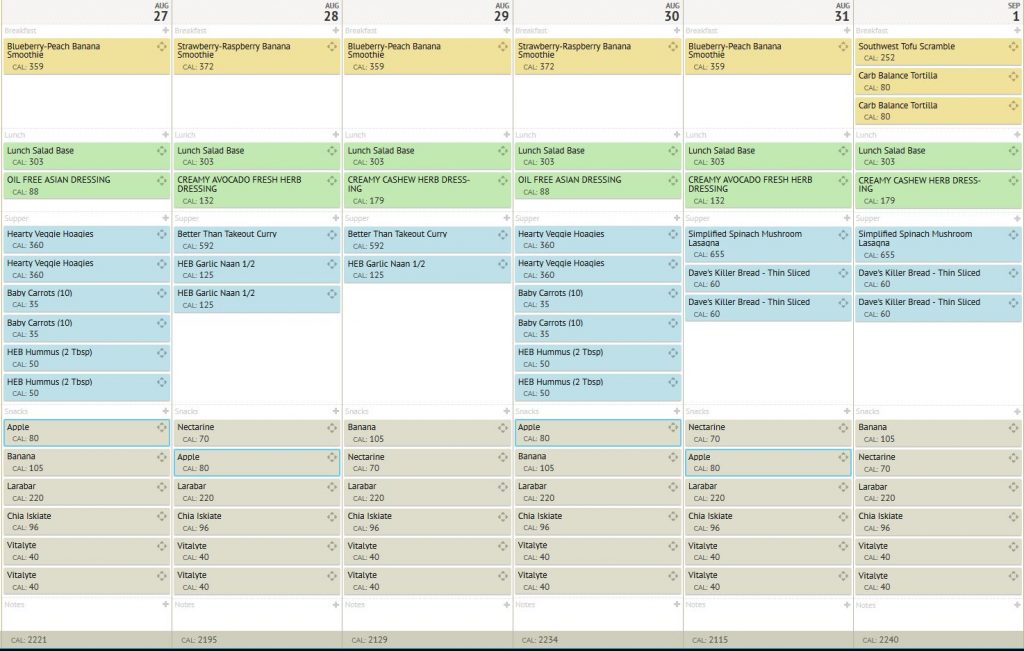Plant Based Meals
This content has been archived. It may no longer be relevant
We haven’t been strict about it for the last few years (after a couple years of being strict), but we still heavily list towards a plant-based diet. Typically, we’ll stray from plants-only with friends or family or out at restaurants for the sake of convenience, but our staple foods in the house, with our home cooked meals, are all relatively healthy, plant-based spreads. Most of our recent reading has been on endurance athletics: books like Born to Run, Eat and Run, and Finding Ultra, which are all by endurance athletes who compete in foot races traveling hundreds of miles at a time, often over a hundred within a single day – on a plant-based diet. And it seems, despite conventional wisdom, that these and many other ultra-endurance athletes attribute their successes to their diet, rather than despite of it.
Most recently, I started looking into NoMeatAthlete, which I believe started out as a podcast and fanned out into an enterprise of books, personal coaching, and meal planning. The thing that I was searching for was guidance on how to eat not just a plant-based diet, but a consistent, easy-ish to follow system to provide all the nutritional needs for Kelly’s cycling training (she’s going for a century, and currently riding 12-40 miles every day, with a longer ride each Saturday) and my marathon training (currently running about five miles a day, with a longer run on the weekends). When I started using MyFitnessPal a few months ago, I realized I wasn’t eating enough. Since then I increased my caloric intake to what it should be, and lost about ten pounds. So it seems, carefully planning out your nutrition is probably a good thing to do. For a lot of other people, the inverse seems to be true – they overeat or overdo it on certain food groups. Macro tracking can’t hurt to try.
Note: NoMeatAthlete (to a lesser extent), Dr. Fuhrman, Keto, Paleo, and all sorts of popular diets, many of which I will occasionally cite, give me a feeling akin to the one I get when reading books like Rich Dad, Poor Dad, The 4-Hour workweek, and Good to Great. That is to say — I don’t inherently trust them, and they seem to be selling fairy dust. But parts of them, with consideration, can be both insightful and useful. You have to draw your own conclusions based on the evidence available to you and not follow anything blindly, and the conclusions in this post are ours – they are not necessarily the same conclusions you would draw from the same information.
Moving forward, Kelly and I have decided that we’re going to be a little more strict about it. Our personal beliefs and aversion to animal products is multi-faceted, and has room for occasional exceptions. For simplicity, I’m going to break it down into two parts.
== Health ==
Though there are many competing studies regarding diet, with a variety of conclusions, the majority of them find that a) it can’t hurt to eat more fruits and vegetables, and b) it can’t hurt to eat fewer animal products. There are quite a few studies that link meat and dairy consumption with a variety of different diseases, including heart disease and cancer, and a sufficient amount of studies to prove that a well designed plant-based diet will not adversely affect you. Then, you move into anecdotal evidence.
I’m a bit skeptical of some of the claims by Dr. Fuhrman, and documentaries like What the Health, but will consider their experiences and lessons as valid anecdotes. And then you have an entire wave of athletes – and not just ultra-endurance athletes like I’ve been citing here, but world-record-holding strongmen like Patrik Baboumian and famous football players like David Carter and Tom Brady also have their own tales of dominating sports on a vegan diet. And if such athletes can not only survive, but thrive on such a diet, your every-day common man, who spends most of the time sitting on the couch, can too.
Finally, there is our personal anecdote: we feel better.
I’ve ran across what I’m going to call the 90/10 rule. 90% of your diet must consist of unrefined plant products for optimum health. Once you reach that threshold, the other 10% are up for grabs. That doesn’t mean you should make 10% of your diet refined sugar and ribeyes, but it does serve as a what sounds like a pretty reasonable guideline to me. Everything in moderation.
== Ethics ==
Our ethical issues with meat and dairy are with the supply chains – not necessarily with the use of animals themselves. Though we believe that every animal should have a right to live (and live in peace), there is a natural food chain and inevitably, we understand that all things must come to an end. In the last fifty years we’ve moved from family farms where animals were given freedom to roam and live out their lives until slaughter, and then were slaughtered humanely, to the factory farms of today. Today’s factory farms pack animals so tightly that often they cannot move. They live a life of abuse until they are sent, terrified, down slaughter lines. With birds, for example, the current line rate is usually 140 birds per minute. With a single slaughter line at 140 birds per minute, you have less than half a second to dispatch each bird. They are often missed and then plunged into boiling water while still alive. And the speeds are just increasing as demand to a) reduce labor costs, and b) increase yields inevitably see fruition. Not only is this inhumane, but the increases in line speeds are thought to be linked to increases in food contamination and disease outbreaks. Similar situations exist for the beef and pork industries, though typically speaking, cows have it the best of the three. Dairy has its own subset of problems. Industrial farming is trashing ecosystems and commercial fishing with nets has decimated our oceans and they may never recover. This concern leaves room for the exceptions: there are farms out there who produce meat, dairy, and eggs in somewhat agreeable manners to us, though they’re not the ones who sell to fast food restaurants or large chain grocers. By not purchasing animal products, we are voting with our money.
Similarly, we have no problem with private fishing or hunting. In fact, license fees for hunting and fishing are responsible for many of the conservation efforts out there, and though counter-intuitive, hunting and fishing plays major roles in conservation efforts across the globe (both through the use of fees, as mentioned, and the fact that numbers need to be maintained, especially of invasive species)…
We’ll eat what we catch or hunt ourselves. I bought a boat for tuna fishing, and still hope to catch a few.
Now, for the week I took bits and pieces from various sources, and added them my planner at plantoeat.com. I came up with the following meal plan, designed to be simple, easy to do, and provide ample calories. It is roughly based off this NoMeatAthlete post.
Breaking it down, you can see that every morning (during the week) starts off with a smoothie containing a couple cups of frozen fruit, three bananas, a couple tablespoons of flax seed, a bunch of walnuts, and a couple handfuls of spinach, followed by a base salad consisting of green leaf, red leaf, and romaine lettuce, kale, red cabbage, shredded carrots, cherry tomatoes, red onion, and great northern beans. Then, it has one of three oil-free dressings added to it. We planned three dinners, staggered so that we cook three times and eat left overs three times, so that we will not have to cook every night. Throughout the day we have a set of snacks, including both pre and post-workout options, and can include or remove snacks as needed to meet our specific calorie needs for the day. As listed, the bottom row includes the calorie information for each day: roughly 2100 to 2300 calories a day, sufficient for both of us except with the exception of Saturday, the day of our long endurance exercises, where we may throw in some additional snacks.
We’ll likely continue having coffee with a coconut/almond half-and-half replacer we found every morning, and will probably add in green tea at night. We take a multivitamin and vegan DHA/EPA supplement, which almost everyone should benefit from, regardless of diet.
Very few things on the menu are processed or pre-packaged (the glaring exception being Vitalyte), and by carefully planning it out so that it will require the least amount of effort won’t take any more time than a conventional, home-cooked diet plan. We work from home, but the lunch could easily be adapted to take to work with you, and the breakfast can be made the night before and stored in a cup in the fridge. The snacks are all easy to grab and take on the go.



